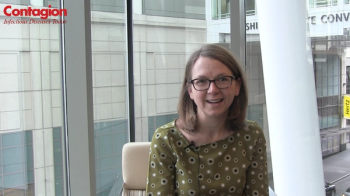
On-demand pre-exposure prophylaxis with TDF/FTC is not associated with a clinically relevant change in kidney function the way daily PrEP use is, investigators in France found.

On-demand pre-exposure prophylaxis with TDF/FTC is not associated with a clinically relevant change in kidney function the way daily PrEP use is, investigators in France found.

CROI 2019 was held March 4-7, 2018, in Seattle, Washington. The conference featured results of new studies on a variety of HIV topics as well as advancements being made in the field. Here are 5 key takeaways from the meeting.

Kavita Misra, PhD, MPH, explains how health care providers can help prevent PrEP resistance from growing by increasing screening for acute HIV infection.

Julia Marcus, PhD, MPH, discusses the barriers of PrEP use and how current prescribing guidelines are used in clinical practice.

Paul Sax, MD, details his research on integrase inhibitor-based regimens and weight gain.

From the London Patient to the DISCOVER trial and everything in between, HIV experts provide their biggest takeaways from CROI 2019, in the second part of our highlight reel.

Brad Hare, MD, explains how the findings of the DISCOVER study indicate that PrEP is no longer a one-size-fits-all situation.

From the London Patient to the DISCOVER trial and everything in between, HIV experts provide their biggest takeaways from CROI 2019.

Bluma Brenner, PhD, confesses that HIV "terrifies the hell" out of her, as it continues to build resistance against existing therapy regimens.

Kristine Erlandson, MD, MS, shares her findings on the connection between obesity and neurocognitive decline in persons with HIV.

Short-term investments in pre-exposure prophylaxis (PrEP) are predicted to result in long-term cost-savings and promote significant health benefits following its distribution in Germany, according to a new modelling study in Eurosurveillance.

Laura Waters, MD, FRCP, an author on the Nature article on the reported HIV remission of the London Patient, explains why it is too soon to label the remission as a cure.

In a symposium at CROI 2019, Jean-Michele Molina, MD, presented on PrEP failures, highlighting elements of diagnosis, resistance and treatment.

Monica Gandhi, MD, MPH, discusses antiretroviral options and and treatment decisions for women of reproductive potential.

In a symposium at CROI 2019, Laura Waters, MD, FRCP, presented on the developments of 2-drug regimens for HIV treatments, as well as the questions that remain unanswered.

Persistence on HIV pre-exposure prophylaxis drops off dramatically over a 2-year time period, with only 2 out of 5 users persisting on the treatment, according to a recent study from Emory University.

Paul Sax, MD, shares his take on news of the second person ever achieving long-term HIV remission.

Susan Swindells, MBBS, discusses the ATLAS trial evaluating long-acting intramuscular injections of cabotegravir/rilpivrine in treatment-experienced individuals.

A new study examining tuberculosis and HIV coinfection in patients in Latin America has found that those with TB had higher mortality rates over the course of a decade, despite successful TB treatment.

Lynne Mofenson, MD, spoke to Contagion® in an exclusive interview to explain what the current data suggest on the impact of antiretroviral therapy on maternal health and pregnancy outcomes.

Pietro Vernazza, MD, discusses his presentation on the scientific underpinnings of U=U 11 years after issuing the Swiss Statement

GS-6207’s resistance and pharmacokinetic profile make it a suitable candidate for low-dose, long-acting administration to treat HIV-1 infections, a study finds.

A fast switch to second-line ART after observation of elevated VL or CD4

The opioid overdose death rate for persons living with HIV was 42.7% greater in 2015 than in 2011 even though the total death rate among HIV-diagnosed individuals decreased.

The FLAIR trial evaluated whether a switch to monthly long-acting injectable cabotegravir /rilpivirine is non-inferior to oral dolutegravir/ abacavir /lamivudine in treatment-naive adults.